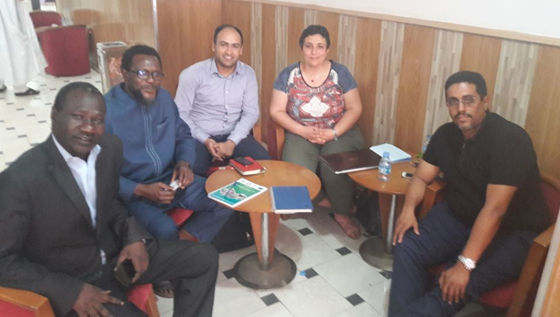This collaboration builds on the ongoing support provided by GWP-Med in the framework of WACDEP project to CNRE. More specifically, this collaboration looks towards the implementation of the Action Plan for the Monitoring & Evaluation System of Water Resources and Water, Sanitation and Hygiene (M&E System for WR & WASH) that was validated and adopted by the Ministry of Hydraulics and Sanitation in February 2018. ( https://www.gwp.org/en/GWP-Mediterranean/WE-ACT/News-List-Page/gwp-med-and-unicef-mauritania-join-forces/)

For this purpose, GWP-Med is partnering with Agryhmet to assist CNRE initiating the preparation of an Atlas for surface waters in Mauritania. A joint training will be organised by the end of 2018 aiming on transferring methods and know-how appropriate to the Mauritanian context in the fields of climatology, meteorology, hydrology, and remote sensing. The training convened by CNRE will gather all relevant ministries and governmental bodies involved on water data collection and processing.
Agrhymet (http://www.agrhymet.ne/)
The Regional Centre of Agro-Hydro-Meteorology (AGRHYMET) is a specialized institution of the Permanent Interstate Committee for Drought Control in the Sahel (CILSS). CILSS is an Intergovernmental organization created on 12 September 1973. Currently, it counts thirteen (13) Member States: Benin, Burkina Faso, Cape-Verde, Côte d’Ivoire, The Gambia, Guinea, Guinea-Bissau, Mali, Mauritania, Niger, Senegal, Chad and Togo. Its mission consists of conducting research in food security issues and controlling drought and desertification effects for a new ecological balance in the Sahel.